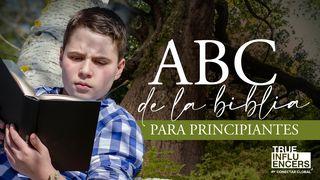How to Trust God in a Chaotic WorldMuestra

What do we do with the anger, powerlessness, and despair if we pay attention? We lament.
Lament is a plea for help that describes suffering. It declares wrongdoing for what it is—unjust. When you’ve prayed desperate prayers, you were lamenting in faith. You said what should not be and sought the one who could help. It’s not complaining or whining. Following this prophet, it’s a bit like a protest. The act of lament reminds us of two things: what is true and right about God and what is true but wrong about the world.
Habakkuk knew that God was not one of the idols of neighboring countries, made up by man. The prophet prayed to the Lord, Yahweh, the God who made a covenant with his people, binding himself to them. He was the God who made the world in perfect goodness. He was the God who had promised blessing through Abraham’s family to the world, and he declared Abraham righteous by his faith. He was the God who had worked miracles to redeem them from slavery in Egypt. God’s right law revealed himself as a God who loved righteousness and hated injustice.
Part of lament is deep remembering.
I know a lot of things. I know what temperature to brew green tea and how to cook pancakes. I also know the truth about God’s character. I have heard it, studied it, and even taught it. But lament asks me to remember it when fear and anger beat against my mind, like a storm that keeps you up at night. It’s not knowledge we access when we are sleepily making breakfast and tea in the morning. It’s what we know in distress and desperation.
In those times, you and I may have doubts and questions. Suffering makes the ground under our feet like the shaky bridge on a child’s play structure. What once felt solid, now makes us wobble. Lament gives us patience with the complexity of our thoughts while coming to God.
It is our act of faith in the face of evil—lament.
Prayer is not idleness when we are faced with injustice. It is engagement. For if our faith says that God is powerful to act, then going to him is the most effective action. If we don’t lament, our vision is likely blocked, seeing only the wolf pack, instead of looking up to him who is strong enough to protect and judge.
The grieving prophet models for us how to respond to evil. So, we pay attention instead of looking away, lament instead of numbing out, and ask with expectation instead of avoiding God altogether.
Escritura
Acerca de este Plan

Our chaotic world often compels us to cry out to God for help and plead for change. Join Taylor Turkington, author of "Trembling Faith," in this five-day devotional inviting you to pray alongside the distressed prophet Habakkuk as you survey the brokenness in your own experiences. It also encourages you to place your faith in God who loves justice and has promised all will be eventually made right when Jesus returns to rule and reign forever.
More
Planes relacionados

ABC De La Oración ... Para Principiantes.

Confiando en Los Propósitos De Dios

1 Tesalonicenses: Modelos a imitar

ABC De La Biblia Para Principiantes

Que El Mundo Crea

Testigos Del Milagro: La Primera Navidad
Marcas De Un Discípulo

¡Levántate! 7 Claves Para Levantarte Y Seguir.
